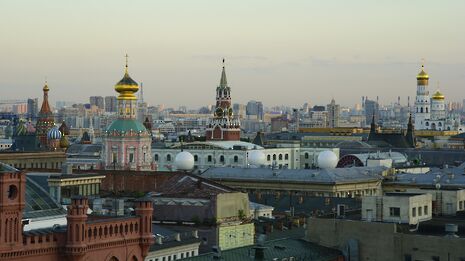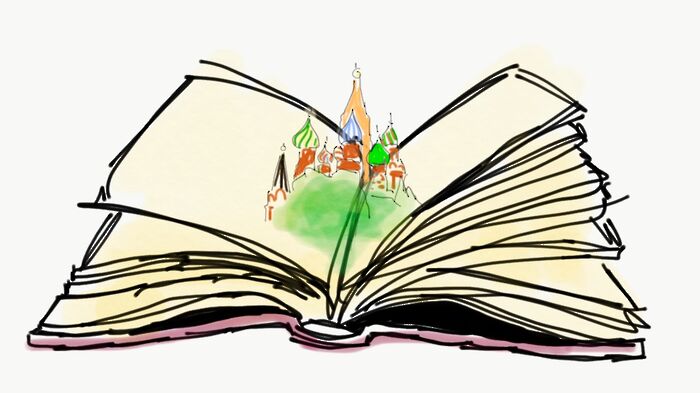Rediscovering Moscow
Moscow is a city often obscured by “British” perceptions, Beth Bhargava delves into its history and culture through the eyes of Russian literature

We are living in a time when the word “Moscow” is reduced to mere exoticising synecdoche. It is employed in popular literature and journalism as a stand in for a whole system of power, frightening in its very obscurity and incomprehensibility to British audiences. In the context of heightening Russo-British tensions (we are shortly approaching the anniversary of the Salisbury Novichok poisonings) the name has in fact regained some of its Cold War associations of aggression and repression, being deployed in order to conjure up images of an “evil empire” which is – in some fundamental yet inexplicable way – alien to “British” perceptions, policies and political and ethical practises. It is this all too prevalent narrative which clouds more concrete analysis of contemporary circumstances, and which normalises the unhelpful conflation of the current regime with those of Russia’s past (at one Cambridge talk on Russian foreign policy I have attended, an elderly audience member referred to modern Russia as “the Soviet Union” , without meeting correction from the panel)
“A vision of Moscow as a city of comfort, restraint, piety and family permeates the work of Leo Tolstoy.”
It thus seems an appropriate moment to ask the question “what is Moscow?” – and to discard superficial and reductive answers. A useful way of reframing Moscow for a British public is perhaps to assess the city’s symbolism in the Russian literary tradition. This practise, allowing us to look at the city through Russian eyes, may allow a deeper insight into Russian culture (and one shorn of traditional assumptions of its inherent “other-ness”).
Moscow, in Russian canon, has frequently been cast as St Petersburg’s foil. For generations of Russian writers, Moscow was the holy capital of an uncorrupted, pre-Petrine Russia. The 18th century removal of political power to the new capital, Petersburg – with its hostile location and imported Baroque elegance – was seen as the source of a distinctive spiritual and cultural alienation deleterious to the Russian soul. If Petersburg was a corrupt, decadent symbol of “Europe” – a sick organ transplanted into the Russian body-politic – then Moscow was the healthy, beating heart of Russian tradition which had mistakenly and arrogantly been replaced.
This understanding of Petersburg and Moscow is a commonplace of the country’s most internationally prominent “classics”. A vision of Moscow as a city of comfort, restraint, piety and family permeates the work of Leo Tolstoy. In Anna Karenina it is Moscow which yields to the hero Levin the delights of domesticity, and which finally offers him the long-desired gift of requited love and marriage with the beautiful Kitty. Petersburg, on the other hand, is the site of high-society decadence, gossip and hypocrisy: all those forces which conspire to deprive Anna of her place in the world, building towards the book’s terrible climax. In War and Peace the contrast is even more marked. The book opens in Petersburg with extraordinary scenes of excessive consumption of vodka (an unfortunate policeman, who apparently decided to intervene, is reported to have been tied to a bear and thrown into the river). Meanwhile, Moscow is portrayed as a place of familial bonds and spiritual purity. This perception is reinforced mid-way through the novel, as the city sacrifices itself to the flames in order to halt the advance of Napoleon’s army. This event is depicted in countless 19th century texts, constructing Moscow as the crucible of Russian national identity and international assertiveness. As Herzen writes, “the people discovered the ties of blood that bound them to Moscow by the pain they felt on hearing of her capture by the enemy. For her, it was the beginning of a new epoch”.
The change which besets the city in the literature of the 20th century is therefore remarkable. A sense of this is to be found in Boris Pasternak’s Doctor Zhivago. Early on, the reader is informed that one character (an elderly intellectual and philanthropist in the tradition of the previous century) has become just the latest in many generations of Russians fleeing the “bedlam” of Petersburg for “the peace and quiet of the ancient capital” – where, however, he fails to find comfort. As the narrative develops, Moscow retains its traditional identity as the site of familial domesticity, but far from being a comforting concept this is transformed into a struggle for survival against the odds. The collapse of Moscow as a symbol of hope, faith and trust in the literature of 20th century Russia is a potent reflection of the privations and struggles of the time. It represents a symbolic rupture with the country’s past every bit as great as the long-ago shift of the capital to the country’s periphery.
Despairing of their chances in the city, Doctor Zhivago sees the hero’s family set off on a long rail journey across their country, in the hopes of eventually reaching Siberia. It is these themes – the significance of railways in Russian literature, and the remote expanses of Siberia – which my remaining columns will seek to explore.
 News / Caius mourns its tree-mendous loss23 December 2025
News / Caius mourns its tree-mendous loss23 December 2025 Comment / Yes, I’m brown – but I have more important things to say22 December 2025
Comment / Yes, I’m brown – but I have more important things to say22 December 2025 Interviews / Politics, your own way: Tilly Middlehurst on speaking out21 December 2025
Interviews / Politics, your own way: Tilly Middlehurst on speaking out21 December 2025 News / King appoints Peterhouse chaplain to Westminster Abbey22 December 2025
News / King appoints Peterhouse chaplain to Westminster Abbey22 December 2025 News / Clare Hall spent over £500k opposing busway 24 December 2025
News / Clare Hall spent over £500k opposing busway 24 December 2025









